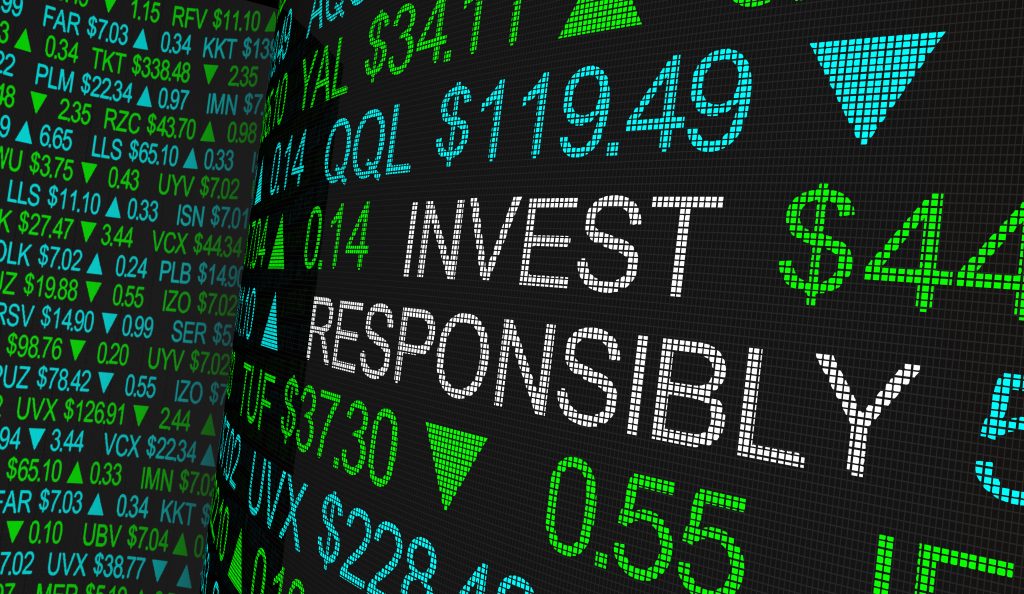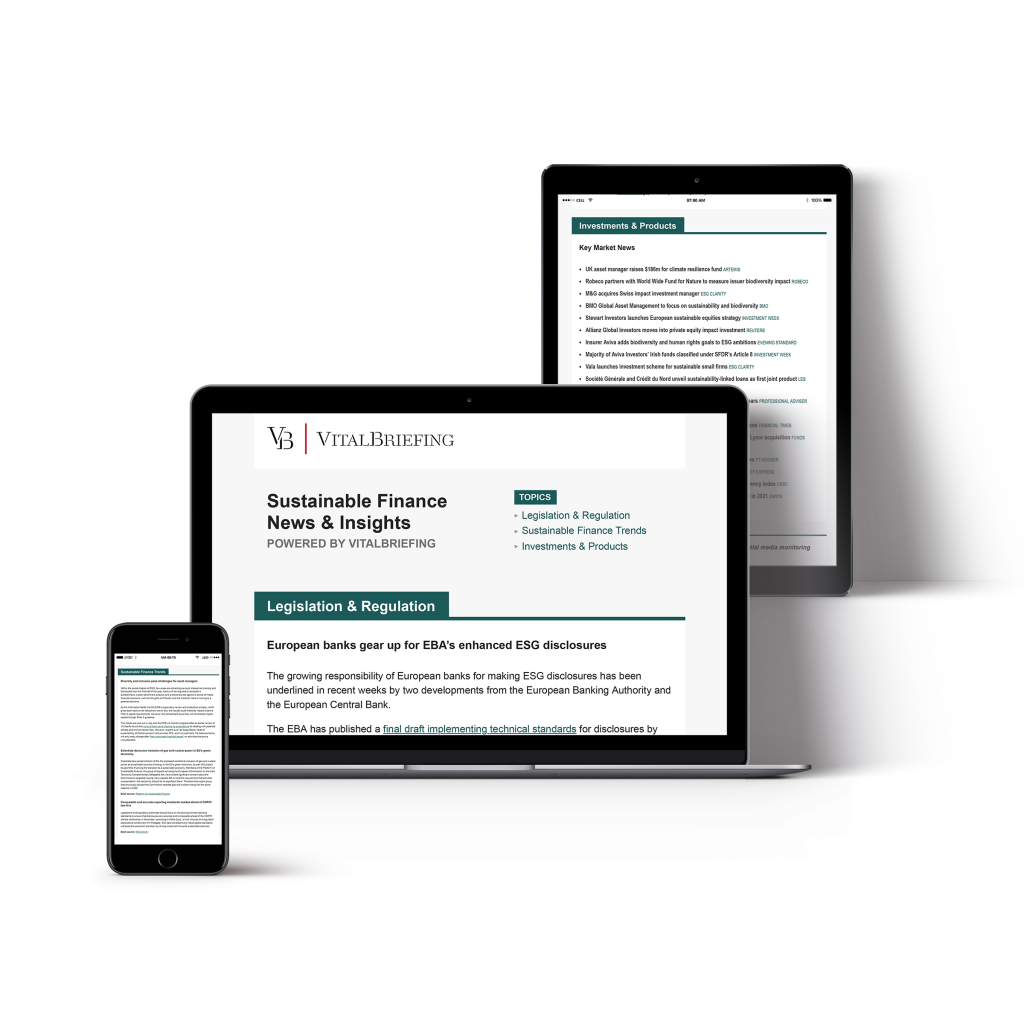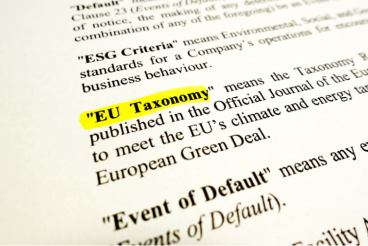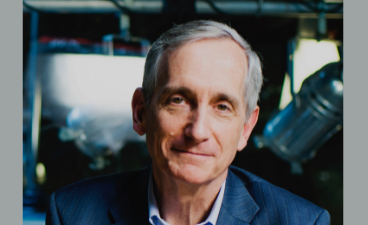This article is from VitalBriefing’s Sustainability Matters content series, in which we speak with experts across every facet of sustainability, ESG, sustainable finance, impact investing and more. If you or a colleague are interested in participating in the series, please get in touch by emailing eschrieberg@vitalbriefing.com.

While the progress made at last November’s COP26 climate conference in Glasgow is inadequate to keep global warming below 1.5ºC, “it’s the only thing we have,” says Florian Heeb, a researcher at the University of Zurich’s Center for Sustainable Finance and Private Wealth. In a two-part interview (check out Part 2 here), he argues that divestment of fossil fuel businesses by listed companies will not curb climate change if they are acquired by investors less susceptible to public pressure, and that governments, not private finance, must take the lead with strong legislative action.
Climate finance is an important element in global efforts to head off global warming, says Heeb, who specialises, among other areas, both in the impact of sustainable investing approaches and investors’ sensitivity to that impact. But it cannot replace the central role of governments and legislative action. Which makes the current legislative gridlock in Washington D.C. over less than a year a particularly dispiriting prospect.
Heeb applauds efforts – those within and outside the United Nations’ Framework Convention on Climate Change, the Paris Agreement and the succession of Conferences of the Parties — to convince companies and financial institutions to adopt agreements and individual measures that will curb carbon emissions.
The problem, he says, is that it’s not remotely enough to head off changes to the Earth’s climate that are irreversible within any realistic time frame and likely to be hugely destructive to the earth, its ecosystems and human and other inhabitants.

Slow and steady
COP26 in Glasgow, he says, was like most of the Conferences of the Parties in a series going back to Berlin in 1995 (chaired by Germany’s youthful environment minister, Angela Merkel). “Apart from the very surprising outcome in Paris, the Conferences of the Parties have produced slow and steady progress,” Heeb says.
“It’s been moving in the right direction, but not at the speed we need, given the urgency of the climate crisis,” he continues. “We have seen some new developments in Glasgow, the commitments to phase out coal, new rules for carbon trading and on forest protection, but the scientists say that our trajectory is taking us toward 2.7º degrees of global warming.”
Heeb does not question the value of holding the (mostly) annual COP events: “Absolutely, it’s the only thing we have.” But he adds: “The problem is that emitting carbon dioxide into the atmosphere has been very profitable for many countries for a long time. Climate action may benefit the whole world, but not necessarily each country.
“That’s why we need an international effort. If there was a world government we wouldn’t have this problem because it’s obvious that all the measures we could take would pay off in the long run. But it’s incredibly hard to get each country and company to do its part rather than take a free ride and let others fix climate change.”
Bleak prospect

There is a pessimistic view, articulated by Simon Kuper last year in the Financial Times, that ultimately Western democracies vote with their wallets, not their climate consciences; they endorse economic growth, not lower carbon emissions.
He concludes bleakly: “Our generation didn’t even fight the climate battle. We had other priorities. The rich world has chosen its strategy: withdraw from places that will flood or overheat, build dykes around defensible cities like London, put a fleet in the Med to keep out refugees, and hope that tech miracles will save our grandchildren, if not today’s Bangladeshis and Iraqis, ideally on the cheap.”
Heeb acknowledges the strength of this argument but says if anything it’s not sufficiently pessimistic: “Obviously, rich countries have tools for adjusting. But if you look at what happened in Germany [last] summer, building dykes just won’t do. Most of Europe had a terrible harvest for many crops.
“Keeping climate change at bay in the Third World won’t work. It’s certainly true that the poorest countries will suffer most. In the developed world we have the resources available to mitigate most impacts while many countries don’t. But it’s a globalised world and we have globalised problems.
“I still have hope that the COP conferences and other global initiatives will find solutions. But I fear that the speed at which we are advancing is not fast enough.”
Heeb’s speciality is sustainable investment. So what’s his view on the core debate about whether sustainability-focused investors should divest from fossil fuels or engage with emitters to bring about changes in their business model?
Investing in performance
“First, it’s important to define what we expect from sustainable investment,” he says. “What is the motivation for sustainable investment in the first place? We and other research institutions all over the world have been talking to investors about why they want to invest sustainably. The three key motivations we identify are performance, values and impact – and sustainable investment is doing quite well on the first two, but not the third.”
He argues that central to the ESG concept is risk. “If you invest sustainably, you are taking into account material environmental, social and governance risks, which will give your investments a better risk-return profile. In the long run, you should perform better than if you failed to consider this information. It is a pure performance argument. Many thematic renewable funds are primarily sold as tools to gain exposure to growth factors. Sustainable investments can be good for performance – I would say we have seen solid outperformance of sustainable products over the past 10 years.”
In terms of values, Heeb says, arguably the Quakers were the first sustainable investment movement. “Divesting from slavery was a moral action saying that they did not want to be associated with certain business practises. Similarly, the first generation of responsible investment products, which mainly focused on excluding products such as alcohol, tobacco and gambling, also had a clear moral perspective.
“The argument was not that refusing to invest in tobacco would lead to fewer people smoking, but that many investors did not feel comfortable profiting from tobacco or arms production. This has performed well, so increasingly we see screens against certain industries that many people do not feel comfortable having in their portfolios.”
The complexity of impact
However, he believes there has been insufficient consideration of how sustainable investing can increase its impact on the real world and contribute to protection of the climate. “It’s important to think about how investments can effect change, and how they can’t,” Heeb says. “It’s an area in which we have a great deal of research: how can investments contribute to a better world?
“Most people do not understand how complex that topic is. If I buy an electric car to replace a combustion-powered one, that is pretty straightforward. But with an investment product it is not as obvious. If I buy a Tesla share, it is not the same thing as buying a Tesla car. Selling shares of Exxon is not the same thing as reducing my fossil fuel consumption.”
Heeb says it is helpful to distinguish between company impact and investor impact. “Company impact is what companies cause in the real world;” he says. “Tesla produces electric cars that may replace fossil fuel-powered cars, although you have to consider the impact of battery production, recycling and other factors. But you can come up with a number that says whether Tesla has a positive or negative impact on people and the climate.
There is an entire life cycle assessment sector looking at that field.
“The second part is investor impact – the change in company impact that an investor causes. For example, investors can persuade Tesla to make smaller cars, or greener ones. In sustainable investment, 99% of the talk is about company impact, but there is very little about investor impact. This is a problem, because if we don’t know whether an investment makes a difference, why are we measuring it in the first place?”
Incremental change
Heeb says he and his colleagues have not found any evidence that investors allocating or subtracting capital can affect the growth path of large established companies with access to efficient capital markets. “Buying and selling stock or bonds does not translate into different outcomes for future growth,” he says. “However, there is overwhelming evidence that for small and young companies, market inefficiency means investors are able to steer companies’ direction. But capital allocation really makes a difference only in specific cases where there is strong market friction.”
However, a second channel that Heeb and his colleagues call ‘encouraging improvements’ involves the ability of shareholders to use their voting rights to influence how companies go about their business – not how fast they grow or how large their market share is, but how they do things. “There is evidence that in small steps, investors can affect what large established companies are doing,” he says. “But it is incremental change.”
He points to the success of environment-focused hedge fund firm Engine 1 in placing three directors on the board of oil producer Exxon last year. Says Heeb: “They managed to replace a significant proportion of the board, but you would not expect Exxon to keep oil in the ground because of that. They are still an oil company — oil is still their asset — and to serve their shareholders they have to extract that oil to make profits. The question is how much they will invest in renewables. But you cannot make people phase out industries by investing in them.”
“We can see the potential of sustainable investment to contribute to saving the world and where its limitations are. I believe investors can contribute to changing business culture, establishing standards, step by step. It is a valuable contribution, but it will not take us to a 1.5º or 2º world or to net zero by 2050.
“It can help to boost innovation. Take the example of Impossible Foods – in the beginning its prospects were very unclear: a crazy Stanford professor wanting people to eat meat grown in the lab. But Bill Gates was one of the first believers and injected money into a company whose products now are served in every Burger King in the US. “Innovation and changing business culture are among the things that sustainable investing can do. But to reach net zero needs drastic political action. Sustainable investing can support that. But it cannot bring it about.”
Do you need to stay on top of ESG and sustainable finance news? Check out the Sustainable Finance News & Insights Briefing, bringing you news summaries and market analysis on regulation, legislation, investment trends, products and more.
Produced by expert financial journalists, it cuts through the confusion, saving you time by delivering everything you need to know in one monthly newsletter.
More content from the Sustainability Matters series:
Florian Heeb is a researcher at the Center for Sustainable Finance and Private Wealth (CSP) at the University of Zurich. He explores the real-world impact of sustainable investing and how investors integrate impact into their decision-making. Besides his research, Florian serves as a member of the board of directors of ESG-AM, a Zurich based asset manager focused on impact and sustainability.
Before joining CSP, Florian served in the executive management of South Pole, a market leader in carbon trading and sustainability consulting, lastly acting as Chief Operating Officer. From previous positions at myclimate, ProNatura, and the Swiss Federal Institute of Aquatic Science and Technology, Florian brings a broad understanding understanding of corporate sustainability, environmental change and climate policy.






